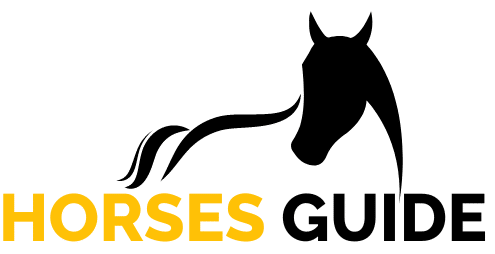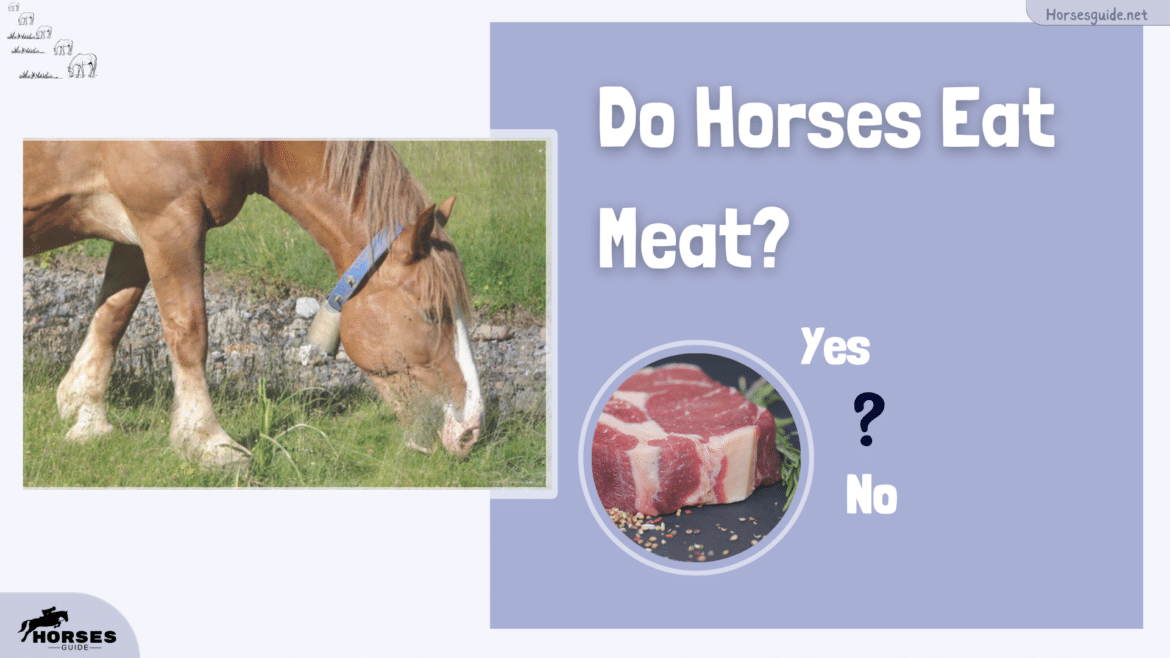Table of Contents
Have you ever considered feeding your equine partner with a meaty treat? Stop right there, folks, before you add up this protein intake in their diet. Let me tell you one thing loud and clear: Horses are Herbivores! Their teeth and digestive tracts are designed to chew and digest plants, not meat, so do some digging before believing this crazy rumor. However, in survival scenarios, wild horses can eat meat but not your domestic fellows. Now that your question of whether horses eat meat has been cleared up, there’s still much you need to know about the reasons and facts regarding equine nutrition. Let’s get into the guide.
Horse Anatomy and Digestion
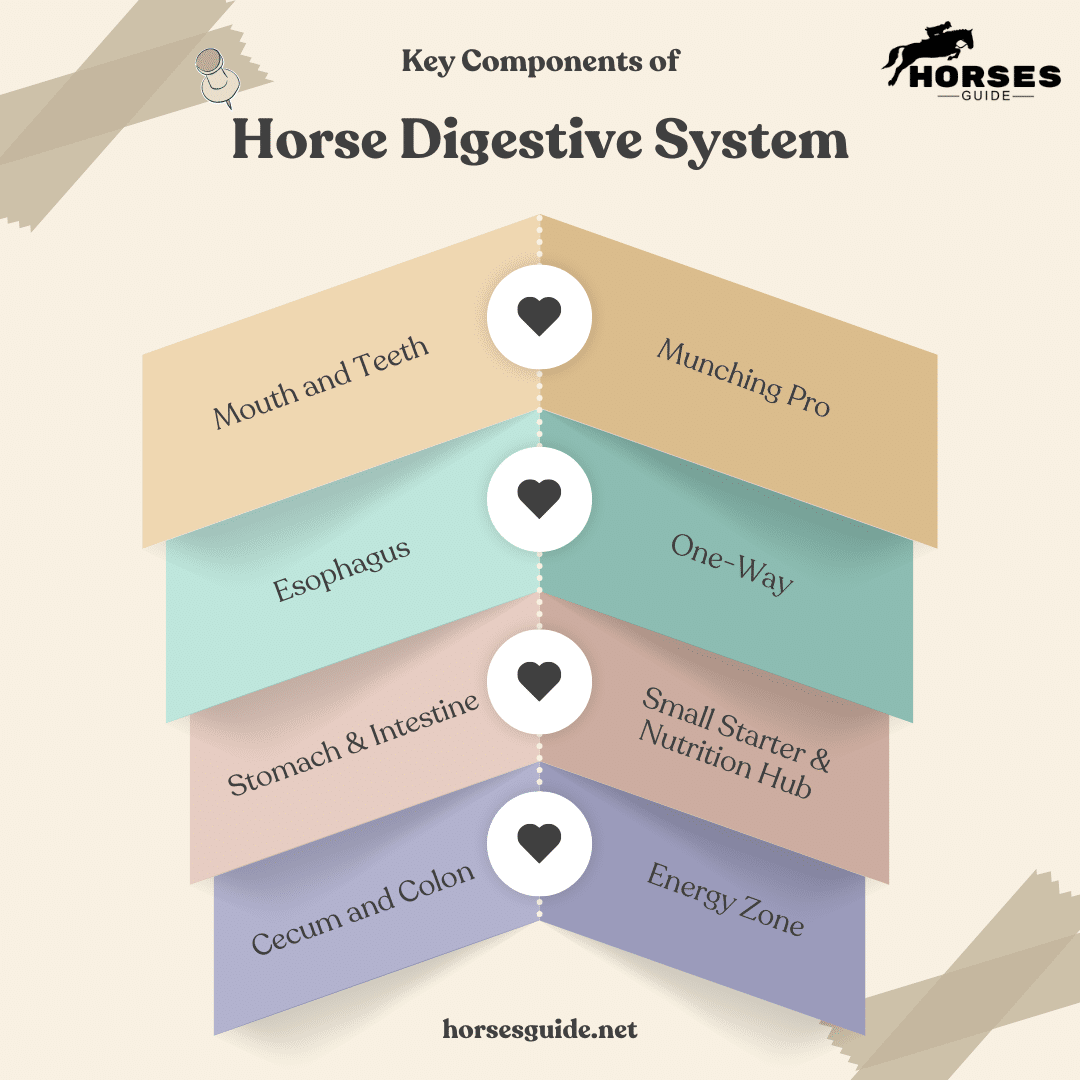
If you want to better understand why horses are given specific treats and meals, it’s paramount to learn about their anatomy. Horses have a unique equine digestive system designed for processing fibrous plant matter. Their digestive tract includes the following key components:
Mouth and Teeth
Horses have specialized teeth for munching—flat molars and premolars grind fibrous plants, while sharp incisors snip grass. They’re nature’s perfect munching machines!
Esophagus
Next is the esophagus, a one-way food delivery tube that moves snacks from the mouth straight to the stomach—no regurgitation allowed!
Stomach
The stomach might be smaller than you’d expect, but it’s busy breaking down food into tiny particles to kick off digestion.
Small Intestine
Welcome to the small intestine, where the real magic happens! Most nutrients are absorbed here, fueling our equine friends with energy.
Cecum and Colon
Finally, we reach the cecum and colon—the fermentation fiesta! Here, beneficial bacteria break down fibrous materials, producing energy-boosting volatile fatty acids.
Fun Fact
Did you know that a horse’s digestive system is designed to process small amounts of food throughout the day? They prefer to graze on grass or hay for 16 to 18 hours a day.
So, next time you treat your horse, remember the incredible journey their food takes through this fascinating digestive system!
Herbivorous Diet
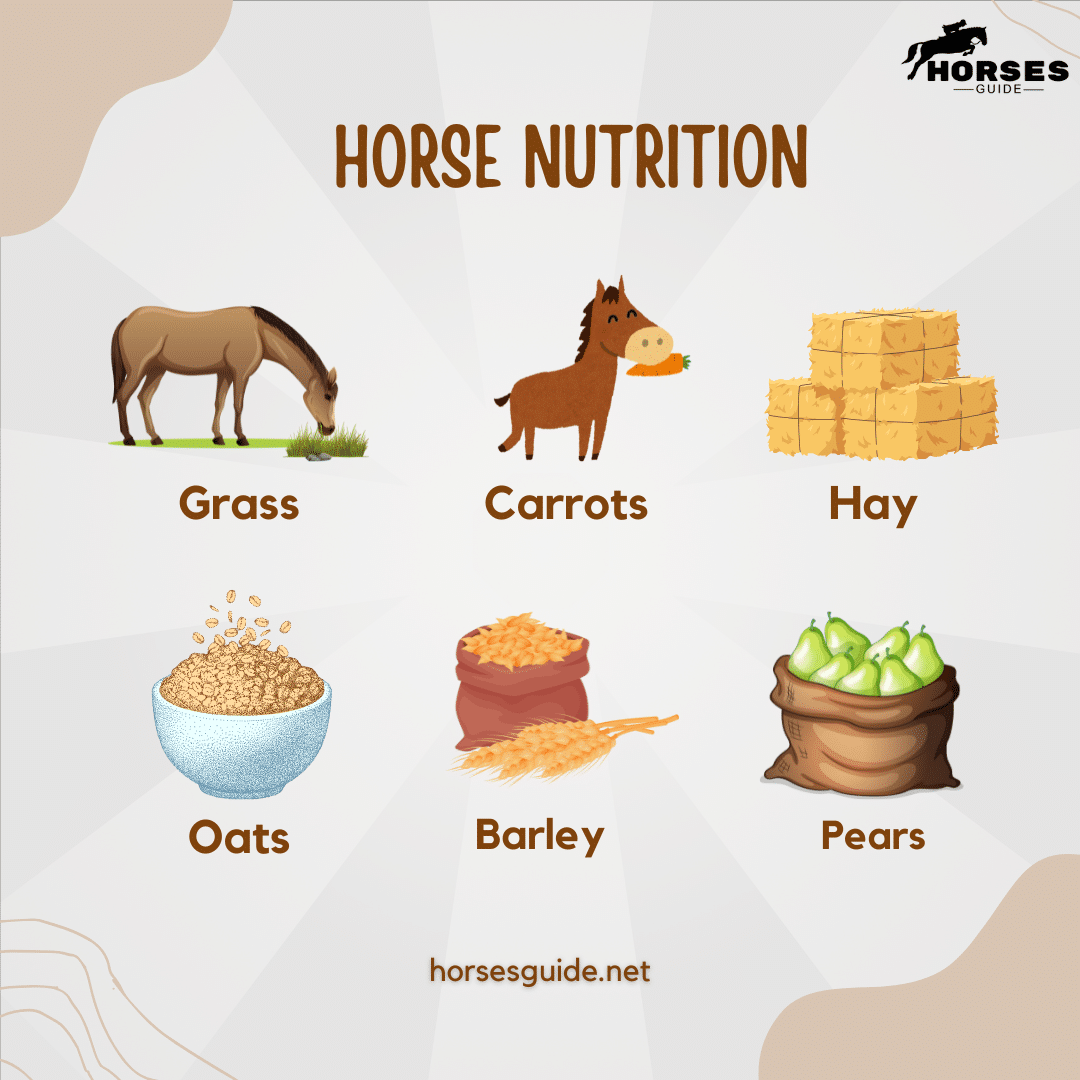
Folks, horses evolved as grazing animals and are naturally adapted to consume a diet high in fiber. Their primary food sources include:
- Grass: The mainstay of a horse’s diet, providing essential nutrients and fiber.
- Hay: A dried form of grass or legumes that supplement a horse’s diet, especially when fresh grass is not available.
- Grains: While not a natural food source, grains like oats, barley, and corn are often fed to horses in controlled amounts to provide additional energy.
Why Horses Don’t Eat Meat?
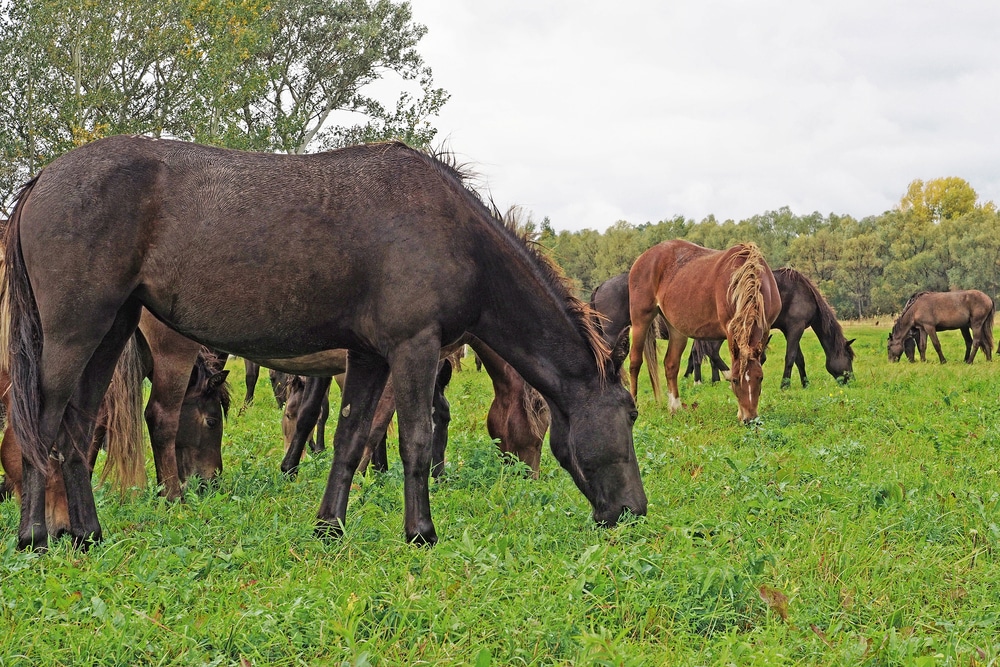
There are some facts that prove that your equine fellow is not structured to consume meat. I am listing the main reasons below:
- Digestive Design: Horses are plant champs! Their digestive system is built for munching on grass, not chomping on meat. Without the right enzymes, they can’t handle the protein-packed stuff.
- Anatomy Advantage: With a tiny tummy and a big cecum, horses are all about plant power! While wild horses are sometimes said to eat meat, it’s a rare misconception—grass is their go-to feast!
- Nutritional Needs: Horses thrive on an herbivore diet. They get all their vitamins and minerals from plants, making meat a big no-no for a healthy horse.
- Behavioral Patterns: Horses don’t hunt or scavenge—no meat cravings here! They stick to their herbivorous habits, and stories of meat-eating horses are mostly tall tales, not the norm.
Exceptions and Misconceptions
However, there are some scenarios and misconceptions that need to be discussed when addressing the question: can horses eat meat?
- Occasional Incidents: Although rare, there have been incidents where horses can eat meat due to behavioral issues or nutritional deficiencies. However, these instances are not typical and often indicate an underlying health issue or imbalanced diet.
- Supplemental Feed: While horses might receive protein supplements in their diet, these are usually plant-based or specially formulated to be compatible with their digestive system. Animal-based protein sources are not used.
Balanced Diet for Horses
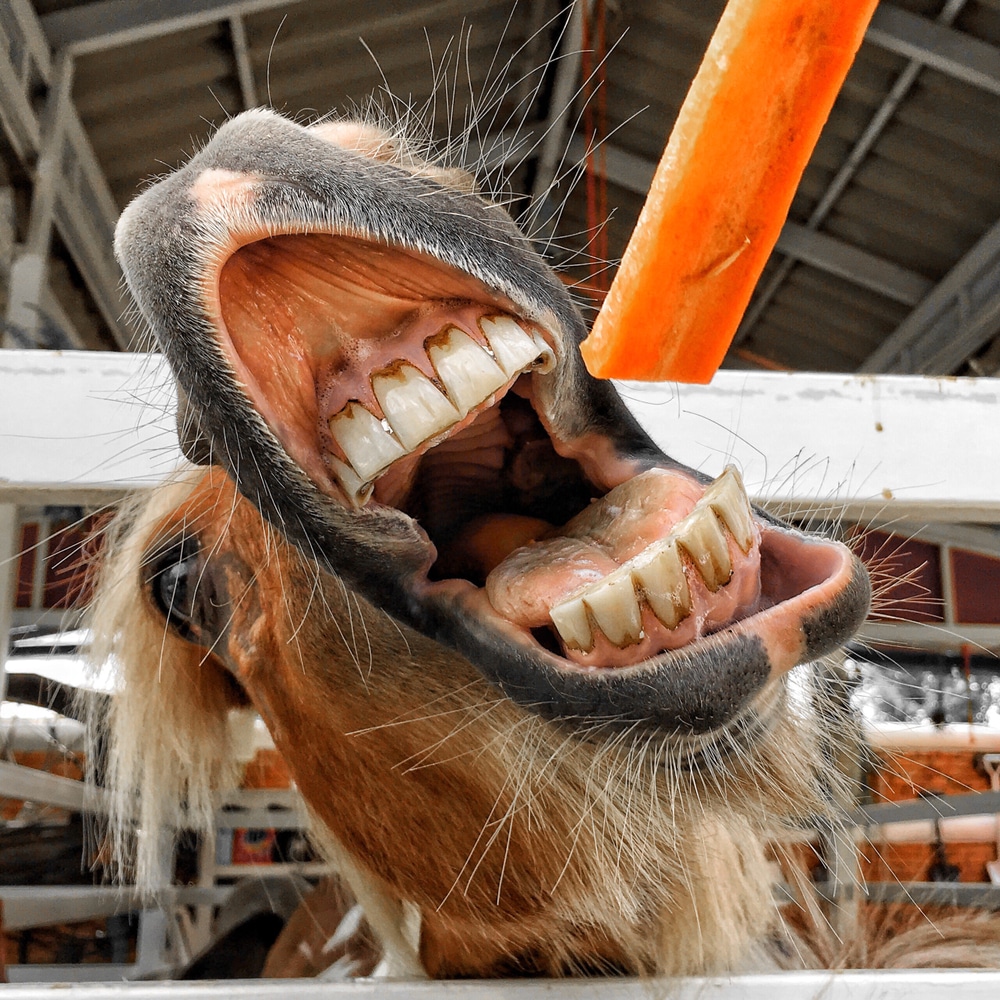
To maintain a healthy horse, it is crucial to provide a balanced diet that meets their nutritional needs.
This includes:
- Quality Forage: Ensure access to high-quality hay or pasture, which should make up the majority of their diet. Moreover, you can also treat them with watermelons and pumpkins as per their needs.
- Grain and Supplements: Use grains and supplements as necessary to provide additional energy and nutrients, but always in moderation and tailored to the horse’s specific needs.
- Fresh Water: Horses require constant access to fresh, clean water to stay hydrated and support overall health.
- Regular Veterinary Care: Regular check-ups with a veterinarian can help identify any dietary imbalances or health issues early on.
You can check details on horse health care in this article for insights.
Conclusion
Summing up what has been discussed so far, horses are herbivorous, with a digestive system adapted for processing plant material. They do not eat meat due to their anatomical and physiological adaptations and natural dietary needs. Maintaining a proper diet and ensuring that horses receive adequate nutrition from plant-based sources is essential for their horse care and overall well-being.
Keep Your Equine Partner Healthy!


